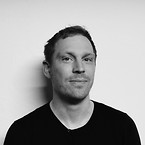Germany's nearly million-strong Kurds are starting to flex their political muscle to bolster support for the terrorist-labeled PKK, which is fighting IS militants in Kobane and other Kurdish regions.
The protesters did not mince their words: Once they arrived at the Turkish consulate here, chants of " Turkey, terrorists" could be heard rising from the crowd.
Draped in traditional clothing and carrying colorful flags and banners, around 2,500 ethnic Kurds rallied in support of their brethren in Kobane, the Syrian town on the Turkish border whose mainly Kurdish population has been besieged by Islamic State (IS) militants for more than six weeks.
Demonstrators accused Turkey of impeding attempts to aid the struggling town and of directly supplying IS. "We want Turkey to stop doing this," says Yavuz Fersoglu, one of the march organizers.
The turnout in Hamburg and other cities underscored how Germany's Kurdish community, spurred by the fight against IS in Iraq and Syria, is beginning to flex its political muscle. One of its key demands is for Germany to end a controversial ban on the Kurdistan Worker's Party (PKK), the Kurds' foremost political and militant force in Turkey, which views its Kurdish population with deep suspicion.
Beyond Hamburg, an estimated 10,000 people turned out Saturday in the southern city of Stuttgart, while marches in Hanover and Bremen drew around 1,000 protesters each, all calling on Western governments to provide more humanitarian and military aid to Kurds in the Middle East. The protests were part of an international day of solidarity with Kobane.
The fact that Germany in particular saw such a strong show of support for the Kurdish cause is no coincidence. The country is home to the largest Kurdish population in Western Europe, with up to a million ethnic Kurds. Precise numbers are not available, because official statistics only record migrants' nationalities, but not their ethnicities.
Kurds began arriving en masse in Germany during the so-called economic miracle in the 1960s and 1970s. In the wake of World War II, Germany's resurgent industry suffered from a shortage of workers. The government opened its doors to workers from several southern European countries, among them Turkey. Between 1961 and 1973 just under a million laborers arrived from there alone, an estimated third of whom were ethnic Kurds.
Politics and the PKKAlthough generally seen as well integrated, Kurds in Germany have struggled to be recognized politically. The PKK is listed as a terrorist organization by the European Union and the United States and has been outlawed in Germany since 1993.
The PKK ban in Germany also extends to its flag, which was conspicuous by its absence at Saturday's protest in Hamburg. But the smiling face of the party's founder-leader, Abdullah Öcalan, who's been imprisoned in Turkey since 1999, graced countless flags and banners.
"The PKK continues to be an illegal organization in Germany, which means that any Kurdish activities here can be criminalized," says Fersoglu, the organizer, who is a spokesman for the German-Kurdish cultural association in Hamburg.
Comparing the organization to South Africa's ANC or the Palestinian PLO, Fersoglu argues that legalizing the PKK in Germany and other Western countries would be an important step toward resolving the solution in the Kurdish areas.
"The PKK should be recognized as the legitimate representative of the Kurds. It's fighting in Iraq and in Syria, and many Kurds here in Germany sympathize with it. It represents Kurdish interests and it is the main organization carrying Kurdish resistance."
Time to legalize the PKK?Trade unions and left-leaning activist groups at Saturday's march also voiced their support for a re-evaluation of the PKK's status. Jan van Aken, a parliamentarian for The Left party, called for an end to the ban.
"It's completely absurd that the PKK is still forbidden as a terrorist organization," says Mr. van Aken, who sits on the foreign affairs committee of the German parliament. "The PKK has declared a cease-fire in Turkey. Today, many countries regard the organization as the last bastion against the fascist forces of the Islamic State. So on the one hand they're being equipped with arms, partly by the US. But on the other hand they're being persecuted here as a terrorist organization. Clearly that can't be right."
Other political parties however are more careful. Green party Hamburg parliamentarian Filiz Demirel said the humanitarian situation took precedence over legalizing the PKK.
"Kurds in Hamburg have recaptured a lot of public sympathy recently," she says. "But we must be careful to not endanger the current peace movement by throwing everything into one pot and mixing it up. One shouldn't take the second step before the first."


